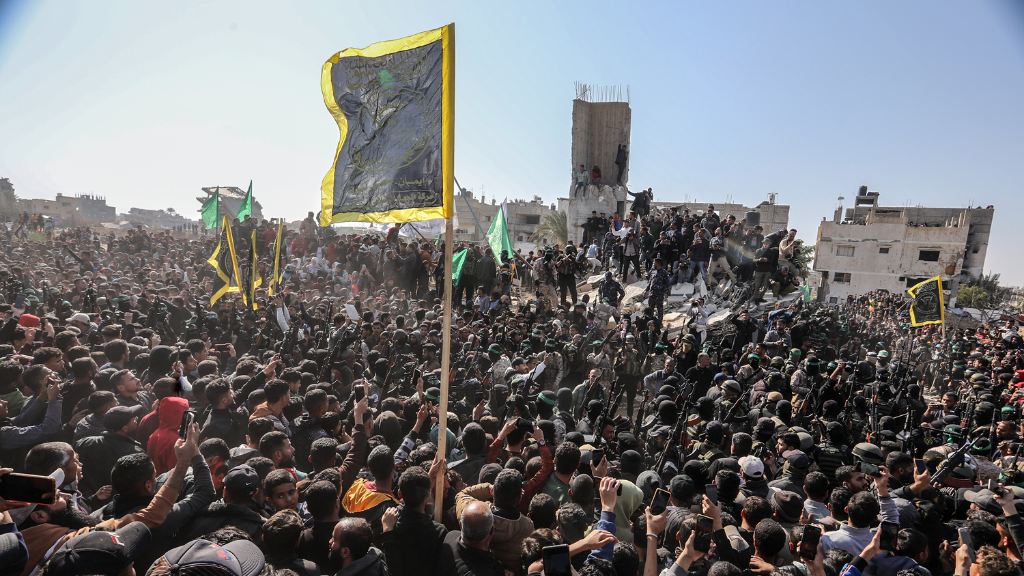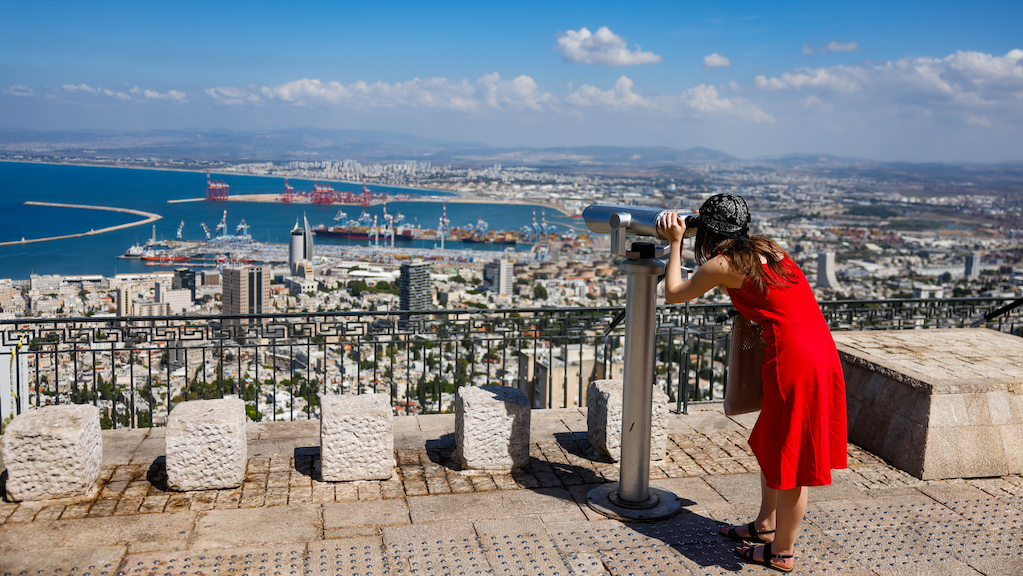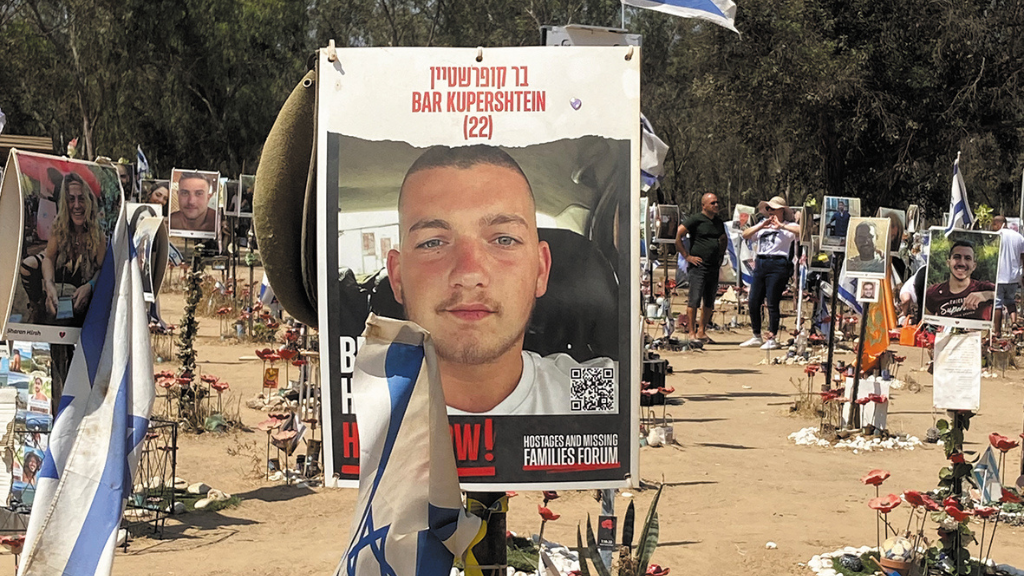Getting Gazans wrong: Understanding support for Hamas and the Oct. 7 attacks
 Hamas, Islamic Jihad and thousands of Gazans seen outside the house of Sinwar in Khan Younis | Photo: Abed Rahim Khaatib/Flash90
Hamas, Islamic Jihad and thousands of Gazans seen outside the house of Sinwar in Khan Younis | Photo: Abed Rahim Khaatib/Flash90
Leila Fadel on NPR’s Morning Edition on June 5 interviewed Graeme Groom, a British surgeon who worked recently at Nasser Hospital in the Gaza Strip. Groom’s comments were entirely one-sided and naive. “The current campaign is directed almost exclusively at the blameless and defenseless,” he said.
The outrageously false accusation that Israel is specifically targeting civilians echoes some of the darkest periods in Jewish history, when blood libels were a regular occurrence.
Far too many pundits and bureaucrats at the United Nations, European Union and nongovernmental organizations strive to portray Gazans as unwilling captives of Hamas—trapped under an oppressive regime with no power and no responsibility. This view fails to take into account the complicated and troubling reality that a significant portion of Gazans support Hamas and its violent actions, including the terrorist attacks in southern Israel on Oct. 7, 2023.
In March 2024, a survey by the Palestinian Center for Policy and Survey Research (PCPSR), which is based in Ramallah, found that 71% of Gazans said Hamas was “correct” to launch the Oct. 7 terrorist attacks, which included mass killings and kidnappings of Israeli civilians. This view is still above 50% as of now (PCPSR, May 2025). Moreover, 64% of Gazans opposed the disarmament of Hamas (United With Israel, May 2025). This shows not only support for Hamas’s past actions but also a commitment to continued Hamas terrorism.
“These murderous views are echoed beyond Gaza as well”
These murderous views are echoed beyond Gaza as well. In the same PCPSR poll, 88% of Arabs in Judea and Samaria, where Hamas does not govern, also rejected the idea of disarming the group.
This demonstrates that an Israeli Ministry of Foreign Affairs tweet posted on X on April 22 was entirely correct: “The Palestinian Authority isn’t educating children, it’s indoctrinating them. Maps without Israel. Teachers praising martyrdom. Textbooks that glorify terror. As long as they teach hate, there’s no hope for peace. Stop ignoring it. Stop funding education that leads to terror.”
The Oslo Agreement says that Mahmoud Abbas and his Palestinian Authority henchmen must “apprehend, investigate and prosecute perpetrators and all other persons directly or indirectly involved in acts of terrorism, violence and incitement” (Annex I, Article II, 3-c of Oslo II). The P.A. has ignored that obligation for three decades now.
The P.A. has never taken any tangible actions against incitement. A recent study from Tel Aviv University’s Institute for National Security Studies (INSS) reviewed P.A. school curricula and found that the P.A. continues to “espouse some of the worst views against Jews and Israel in their textbooks.”
Returning to Gaza, some may respond, as professor Ilya Somin did in an October 2023 article in Reason, by comparing Gazans to Russians living under Vladimir Putin’s regime—people with limited freedom who are not morally culpable for their government’s atrocities. But this analogy only holds if public opinion runs sharply against the ruling power. In Gaza’s case, significant public backing for Hamas is the truth.
“In Gaza’s case, significant public backing for Hamas is the truth.”
That said, dissent does exist in Gaza, and it is dangerous. Criticizing Hamas can result in imprisonment or worse. International reports, such as those from The Times (London), have documented voices within Gaza who resent Hamas and blame it for the destruction visited upon their society. These individuals exist, and their suffering is real. But dissenters remain a minority, and they do not disprove the fact that widespread support for Hamas continues, as measured in credible polls.
Policies concerning refugees, foreign aid and ceasefires must be informed by the reality that a large segment of Gaza’s population supports a terrorist organization. Acknowledging this is essential if Israel is to be successful in its effort to destroy Hamas and prevent future Oct. 7-type attacks that Hamas has repeatedly and consistently pledged to carry out. We cannot afford to misunderstand the extremism that endures among the Gazan majority—doing so risks allowing the terrorist organization to survive. The international community must recognize that Gazans are not victims of Hamas; they are full participants in shaping their society’s situation. They elected Hamas, and they support Hamas. It is time to stop getting Gazans wrong.
Why Israel? by Rev. Willem Glashouwer
Order the book


